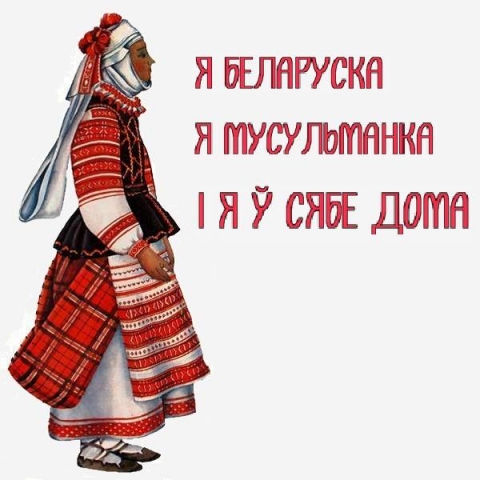Belarus Muslim women are still banned to get their photo for the passport made with their headscarf on (even provided it doesn’t conceal the face and its shape). Such decision was voiced at another regular meeting of Interconfessional Advising Council at the Ombudsman for nationalities and religions Office despite the fact that the rulings of Islamic religion forbids women from showing themselves to non-relative men with their head uncovered.
Wearing a headscarf for a God-obedient woman is not the matter of fashion, she can’t put it on or take it off depending on the current mood and style. The headscarf is in the list of minimum clothes she must have on when showing herself to the public. Colours, different ways of tying and styling are indeed the matter of fashion, but covering head and the body itself represents the with to enact their fundamental constitutional right to act in terms of their religious beliefs. And it is well-known that fundamental rights can be limited only in case of state of emergency or war, and such limitations can be none but temporary.
The matter rose once again in the Belarus society after Ms.Rayana Volha Charnykh, a journalist in profession and a Muslim in faith, tried to apply for a new passport with a photo where she’s shot with her headscarf on, having tied it in a way to fulfill the official requirements as well.
“Don’t get me wrong, I respect my country and its legislation. For that reason, i did my best to fulfill the official requirements when making my photo for the new passport — I shifted my headscarf backwards so that it only covered my hair but no facial skin, tied it in such a manner so that the facial shape was clearly seen… However, they didn’t accept this photo anyway.”
Defending her rights, the journalist appealed to the regional Office for Citizenship and Migration, and having gained no understanding there — to the State Department of Citizenship and Migration. The Officials appeal to the Instruction #200 (June 28, 2008) of the Ministry of Interior and to the fact that the demands are equal for people of any religion, thus, no discrimination is present.
The officials’ fidelity to those principle would no doubt cause less questions if those regulations really were equal for everyone. At the same time, Christian nuns get themselves photographed in wimples that cover both hair, ears and the neck, and their wish to act in terms of their religion never caused any trouble neither for them nor for the State.
“Mirror, mirror on the wall...”
Mufti of Religious Administration of Muslims of Belarus Mr.Ali Voronovich, present at Interconfessional Advising Council at the Ombudsman for nationalities and religions Office, tried to explain that covering one’s head is obligatory for every Muslim Woman of pubertal age in presence of non-relative men. There’s an agreement on this point among all the Islamic theologists.
The officials, however, found a welcome excuse for their lack of will to solve the matter of discrimination: they called to witness “an interview by a famous Islamic researcher and interpreter of Qur’an Ms.Valeria Porokhova, which is in public access on YouTube” that said: “Hijab is not Islam. It has nothing to do with Islam. It’s a tradition, determined by geographical position and climate of concrete countries”. Belarus officials jumped at that opportunity: “Christian nuns act within the terms of their faith, while for Muslim women it’s not obligatory, but rather a popular “Arab style”, thus, we cannot humour the fashion mongers’ fancies.”
The style of covering the woman’s head indeed differs from one region to another. Moreover, it wasn’t long ago when nearly every Belarus woman was covered up, in full cohesion with the peculiarities of the local climate and traditions.
The matter, however, is not even that Ms.Porokhova’s words might be misinterpreted (because we can understand her words equally well as a call for not copying Arab styles, but tying one’s kerchief or headscarf in cohesion with their own nation’s traditional ways), but rather in the officials’ choice of the “expert”.
Ms.Valeria, with all due respect, never had any fundamental education in Islamic theology, thus, she is not authorized to give fatwas (theological opinions on some particular matter). Even if they did understand her words right and she really meant it (a letter to Ms.Porokhova is being written at the moment, asking her to explain whether her words were understood correctly). And even at that point the statesmen never approached Valeria Porokhova and never asked her to comment the concrete situation — they simply took the first best search result provided by the internet search engine, which was consistent with their expectations.
The whole situation looks a lot like catoptromancy: any mirror, being asked “who’s the fairest of them all?” (rightest, cleverest, gravest, — add whichever applies), will permanently show the person who asked the question. Being satisfied with such “answer”, however, fordooms the person to living in the world of their fantasies…
The question of why the officials want to limit their Muslim citizens’ rights out in spite, remains open.
by Ms.Tetyana Evloeva



